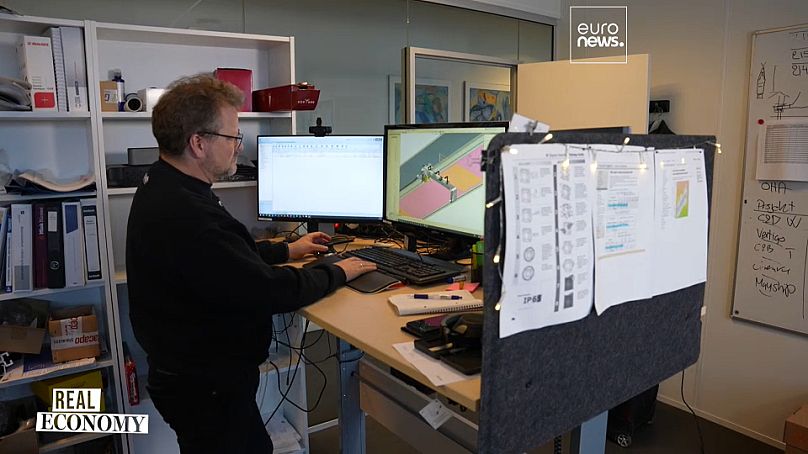The European Commission is eager to train and reskill workers across all member states.
Europe is facing a labour crisis. A substantial number of work vacancies across all sectors following the COVID-19 pandemic is being further intensified by the digital and green transition.
Without a highly skilled workforce, there are fears European companies will lag behind others over the coming decades.
Where are the workers?
The COVID-19 pandemic had a major impact on society and the way we work. This disruption was further realised following the outbreak of war in Ukraine, and the labour market is yet to recover. In 2022, the rate of vacancies in the European Union was 2.8%, ranging from 0.8% in Romania to 4.6% in Austria, with many member states seeing increases from pre-pandemic levels.
Spain saw vacancies increase by 150% in the transport sector, by 111% in public administration, and by 91% in professional and technical activities. The largest shortages are concentrated in manufacturing and construction. Businesses across the continent are starting to feel the brunt of this shortage. A quarter of the 25 million SMEs in Europe say hiring high-quality managers and staff is their biggest problem.
Upskilling and Training
The NextGen Robotics is a Danish consortium developing a new generation of robots and autonomous solutions. It brings together universities and local companies like Inrotech, which designs welding robots. Training and attracting talent are vital for their businesses.
The company is already reaping the benefit of EU funding. Philip Toft Halskov is a marketing manager who choose to upskill and learn 3D modelling to attract more clients.
"Sometimes it could be very difficult to show customers how the robot looks and how it works. So, the plan was to learn how to visualise… this gantry, for instance: to show how it is working, and how the customer will be able to deploy it in their production as well." he says.
Christian Ryrberg Schmidt meanwhile has taken a new step in his career by undergoing training to design a technical data management system.
"There's not many people in Denmark who have this course. It's quite important that we have this system, and to be upskilled in this was a great deal for me." he says.
To keep up with competition, Inrotech relies on a positive work environment to attract and retain talents. NextGen Robotics needs to recruit individuals from craftsmen to PhD holders in order to achieve its ambition, as Kasper, coordinator of the consortium, explains:
"Our strategic forum has identified skilled labour as the number one challenge,"
NextGen Robotics invests in training and skills enhancement with the support of European funds. They also aim to attract students and talents from abroad, like Reza. The Iranian robotics engineer has chosen to do his thesis in Odense.
"The university has a section called S2 Robotics, which is well known in the world. We are going to build a huge centre here and we are trying to bring automation and robotics technologies into maritime, construction and energy sectors." he explains
Year of Skills
In September 2022, the European Commission launched the Year of Skills initiative - a bold new strategy to boost upskilling, training, and innovation initiatives across member states.
"It is actually a strong message to address a major challenge," says Nicolas Schmit, European Commissioner for Jobs and Social Rights. "We are talking about millions of people who need to change or simply improve their qualifications. So, it is an important rendezvous that Europe has with its economic future, with the major transformations that are taking place, whether they are digital or green."
Although the EU is focused on equipping itself for a digital transition, Schmit is hoping the strategy can help boost growth across all sectors.
"Of course, we talk a lot about digital skills, and there are hundreds of thousands of vacant positions in that field. But we also have the construction sector desperately looking for skilled individuals. There are many professions that need to be requalified because technologies are evolving and changing due to the climate challenge. These are professions in high demand, and we are placing a lot of emphasis on apprenticeships because the transition from training to employment is much smoother."
The EU Commission is banking on a targeted approach to fix the rising challenge of labour shortages. Without a workforce, Europe will struggle to hit its major climate and digital transformation goals for the coming decades. The Year of Skills is its strategy to stimulate innovation, promoting education, and empowering people to upskill.











